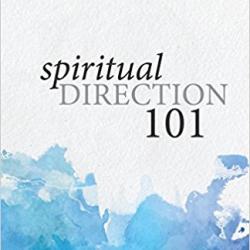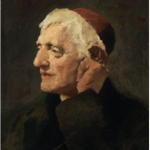What drew me to spiritual direction in the 1980’s is what draws many people to it today—recovering from an image of God that feels pinched, harsh and conditional. Coming out of fundamentalism is difficult and calls some of us to study theology from a different point of view. The five books I’m recommending here (in alphabetical order by author) are among the best books available on progressive theology.
A Catholic theology of nonviolence
The God of Peace by John Dear is designed to wake Christians up to the call to be a nonviolent people. Dear, a former Jesuit, had his theology formed in the 80’s when six Jesuit priests were assassinated in El Salvador for teaching God’s preferential option for the poor. Dear contends that Christians must be nonviolent because Jesus was nonviolent, and Jesus was nonviolent because God is a God of peace. “Most Christians today imagine God as wrathful, vengeful, angry, bitter, mean, unjust, terrifying and violent, even though their personal experience of God may be as a living presence of love. The life of Jesus proposes a different picture of God, “writes Dear (Page 30). This book helps the reader overcome that dichotomy. For a person in need of understanding that Jesus’ God always responds to us in nonviolent love, Dear’s book is highly recommended. You do not need to be Catholic or even a Christian to appreciate Dear’s take on theology.
The Quaker – American Baptist books on universal salvation
If Grace is True and If God is Love by Phillip Gulley and James Mulholland. These two books are almost interchangeable as they address the same subject in different ways. Gulley the Quaker and Mulholland the American Baptist who works interdenominationally have one message to send to the world (and they do it in one voice): I believe God will save every person. If Grace is True provides biblical quotes and themes that support that message and the later book If God is Love offers stories that illustrate how Christians are to live in the world if they believe that God will save every person in the end. These are the books that came a few years before Rob Bell’s bestseller Love Wins and they offer the same kind of grace-filled assurance as Bell (and Dear) that a God of love is never violent. Highly recommended for people recovering from fundamentalism and fearful of the endless torments they were taught of as hell.
The One about Separating Sheep from Goats
Good Goats: Healing our Image of God by Dennis Linn, Sheila Fabricant Linn and Matthew Linn. Working from the premise that “we become like the God we adore,” the Linns urge us to get past our image of a vengeful God because that image is hurting us and others. The title of the book refers to the scripture passage where Jesus spoke of separating the sheep from the goats (sheep being good people who act compassionately toward others and goats being those who do not) and their interpretation of it has us consider that we all have at one time or another been a sheep and a goat. We are all “good goats” in their understanding of Jesus’ teachings. This is one of many books by these retreat leaders (the most famous is Sleeping with Bread) that is illustrated like a children’s book but is most assuredly for adults. Especially adults with a hurting inner child fearful of a God who sends people to hell! The Linns explain progressive ways to understand scripture, offer an exercise for changing our image of God, and tell stories from their own lives that help the reforming fundamentalist know they are in good company. This is one of my favorite books on healing our image of God.
The Game-Changer for Me
The Cost of Certainty by Jeremy Young was the book that cracked conservative theology right open for me, which makes this book my top recommended pick for people struggling to embrace a more inclusive understanding of salvation. Young is an Anglican priest and psychologist who turned his dissertation into a book. But don’t let that scare you off. While it has a bit of an academic flavor, it is clear, well-documented and speaks to the psychological problems caused by embracing a God of conditional love. Rather than trying to do exegetical jujitsu with scripture to prove his point, Young admits that there are really two gospels found in scripture: one that conservative Christianity has embraced, which is a God of conditional love (believe and you will be saved) and one of unconditional love (nothing to do, nothing to prove). Both have many scriptures pointing to their correctness. So what is a Christian to do? Young says we must choose. And while some may say the conditional God is the safer and more “certain” choice, Young says that choice comes with a cost that damages a person’s psyche. If we believe in a violent God who sends people to hell if they don’t believe in Jesus, we then tend to condone human violence to reach certain ends. The best part is that Young provides logical and understandable ways out of biblical literalism that have the capacity to renew contemporary Christian faith and practice.
If you are interested in learning more about spiritual direction or entering spiritual direction with me, please contact me at [email protected] or visit www.teresablythe.net. Also visit my website for the Phoenix Center for Spiritual Direction.













